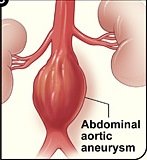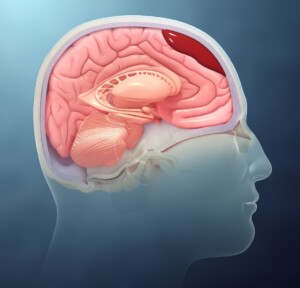There’s quite a few medical conditions that can kill you while you’re sleeping without ever waking you up. This includes young people.
Though some conditions develop while a person is sleeping, the symptoms wake them up.
They may be awake for a very short time, then lapse into unconsciousness, followed by death.
So literally speaking, they did not die in their sleep. They were awake at one point, feeling the pain or trying to call out for help.
A classic example is a ruptured brain aneurysm. The pain would be impossible to sleep through, but death could come within minutes. Unconsciousness, then death, would follow very quickly after the patient wakes from the head pain.
Nevertheless, there are a number of medical ailments that can end a person’s life while they’re fast asleep.
Cardiac Causes
“In my experience most deaths that occur unexpectedly during sleep are attributed to cardiac causes,” says Dr. David Beatty, MD, a retired general practitioner with 30+ years of experience and an instructor of general medicine for 20+ years.
“After a postmortem the cause of death will usually be stated as myocardial infarction [heart attack], ischemic heart disease or coronary arteriosclerosis.
“You might expect that these would cause chest pain or breathlessness which would wake up the person.
“This wouldn’t always happen because the underlying heart problem can cause heart rhythm disturbances, causing loss of consciousness before death.
“Ventricular tachycardia is the most serious arrhythmia, but supraventricular tachycardia, atrial fibrillation or heart block could all be reasons for death (these obviously can’t be diagnosed on a postmortem).
“These rhythm problems can be caused by electrolyte disturbances. High or low blood levels of potassium are especially risky (hyperkalemia or hypokalemia).
“Abnormal calcium levels can also cause arrhythmia.
“People with advanced renal failure are particularly at risk of these problems.”
Severe Hemorrhage
Dr. Beatty explains, “Massive sudden bleeding could cause death in the night. The most likely causes of this would be esophageal varices, peptic ulcer or colonic bleeding from diverticular disease or tumor.
“A ruptured [abdominal] aortic aneurysm can also cause rapid severe bleeding.”

Usually, these cause sudden intense stomach pain. But a sudden massive bleed-out may never give someone a chance to wake up.
Drug Toxicity or Side Effects
“Overdose of any sedative drug or alcohol can cause coma and death,” says Dr. Beatty.
“Opioid drugs are a particular problem because they cause respiratory depression.
“Some prescription drugs, such as the older tricyclic antidepressants like amitriptyline, are dangerous because of the risk of cardiac arrhythmia.”
Massive Pulmonary Embolism
“Someone with a pulmonary embolism would usually have chest pain and breathlessness, but with a very large embolism, coma and death could be induced very quickly,” explains Dr. Beatty.
These blood clots arise from a deep vein thrombosis in the lower body.
At any time, a piece of it, or the whole thing, can dislodge. A “saddle” embolism is the most lethal.
“The embolism moves from the deep veins in the leg, through the heart and gets stuck where the main pulmonary artery splits into right and left pulmonary arteries,” says Dr. Beatty.
“This blocks blood supply to both lungs.” In an instant, all oxygen is cut off. A person may sleep through this; either way they’ll be dead in minutes.
Septicemia/Meningitis
“These can progress extremely quickly,” says Dr. Beatty.
“I know of one case where the person went to sleep with what he thought was a cold. He was found dead the next morning.”
Low Blood Sugar
A hypoglycemic coma can result from low blood sugar. Never feeling a thing, the victim could die in their sleep.
“This can develop and progress very quickly,” says Dr. Beatty.
“It can be caused by someone taking too much insulin or by inadequate food intake after taking the correct dose of insulin.
“Some diabetics are ‘brittle’ and more susceptible to unstable blood sugars.
“Infections can aggravate the problem and so can alcohol excess or dietary inconsistency.”
High Blood Sugar
“This usually has a more gradual onset, and if the person is checking their blood sugar levels they are unlikely to get seriously high sugar levels without being aware of it,” explains Dr. Beatty.
“However, some diabetics don’t monitor themselves well, and high sugar levels can cause coma, dehydration, electrolyte disturbance and cardiac arrhythmia.”
Acute Brain Bleed from Head Trauma
A person may receive a significant blow to the head yet not lose consciousness right away.
A few hours afterward, if they haven’t yet gone to bed, they’ll begin visibly deteriorating (drowsiness, impaired mental function, headache, vomiting, eventual stupor), lapse into a coma, then die

Brain bleed. Scientific Animations, CC/BY-SA/Attribution-ShareAlike 4.0 International
However, if they’re asleep when the brain bleed (e.g., subdural or epidural hematoma) reaches this stage, they may sleep right through it all if the headache isn’t bad enough to wake them, then be found the next morning deceased.
Seizure
The seizure itself doesn’t kill a person. It’s suffocation.
A famous case is that of Olympic gold medalist sprinter Florence Griffith Joyner. She had a documented history of seizures.
She was found dead in bed one morning. According to the coroner, she’d had a seizure in her sleep, and somehow ended up with her nose pressed into a pillow.
Normally, the shortage of oxygen would arouse a person just enough for them to turn away from the pillow, albeit still half-asleep.
But Joyner was unconscious from the seizure. Thus, there was no brain arousal, and she suffocated.
Stroke (Ischemic)
A massive stroke, depending on its location in the brain, can kill a person in their sleep by shutting down vital bodily functions.
Carbon Monoxide Leak
This is not a medical condition, but it causes one: a painless entry into unconsciousness.
The gas is odorless, so thus, a sleeping person would not be wakened by any odor.
As CO levels build in the blood and oxygen drops, the sleeping individual enters unconsciousness, then dies.
Entire families have been found dead in their beds from overnight CO poisoning.
“In many cases of death at night, it isn’t known if the person woke up before death or not,” says Dr. Beatty.
“Many live or sleep alone, and some will have been woken up with symptoms but died before telling someone else in the house.”
 Dr. Beatty has worked in primary medicine, surgery, accident and emergency, OBGYN, pediatrics and chronic disease management. He is the Doctor of Medicine for Strong Home Gym.
Dr. Beatty has worked in primary medicine, surgery, accident and emergency, OBGYN, pediatrics and chronic disease management. He is the Doctor of Medicine for Strong Home Gym.
 Lorra Garrick has been covering medical, fitness and cybersecurity topics for many years, having written thousands of articles for print magazines and websites, including as a ghostwriter. She’s also a former ACE-certified personal trainer.
Lorra Garrick has been covering medical, fitness and cybersecurity topics for many years, having written thousands of articles for print magazines and websites, including as a ghostwriter. She’s also a former ACE-certified personal trainer.
.










































